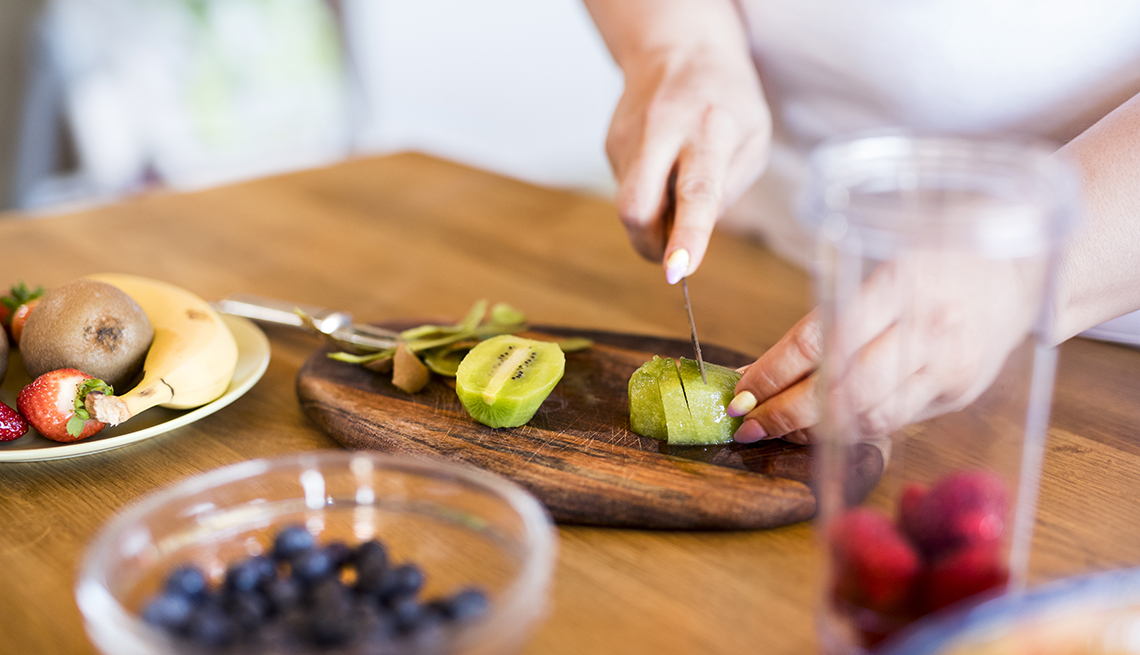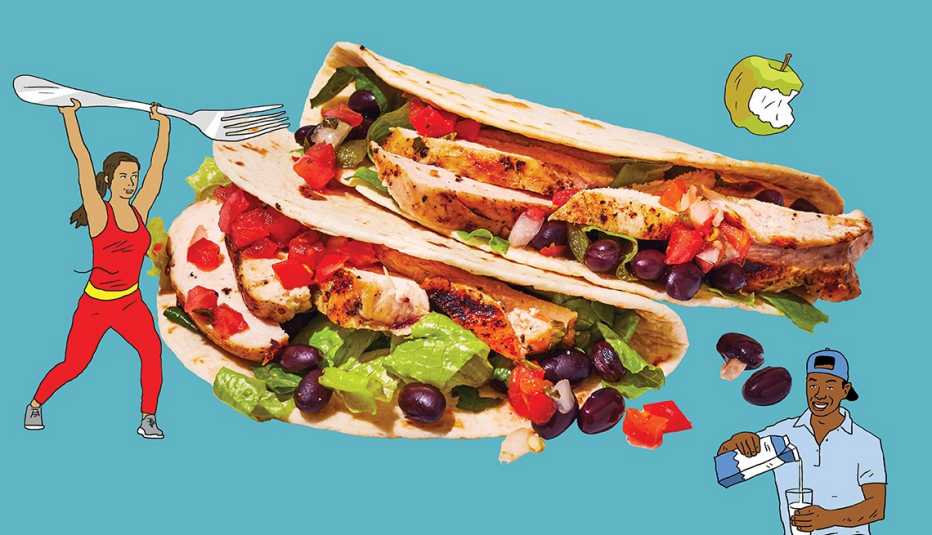Staying Fit
Your mom swore by chicken soup whenever you were sick. And your doctor is always imploring you to eat more vegetables. But how much can a healthy diet contribute to keeping your immunity up?
According to experts, quite a bit. “Our immune system works most efficiently when lifestyle factors are in balance, and first and foremost is having the foundation of a healthy diet,” says Seema Bonney, an emergency room physician and founder of the Anti-Aging & Longevity Center of Philadelphia.


AARP Membership— $12 for your first year when you sign up for Automatic Renewal
Get instant access to members-only products and hundreds of discounts, a free second membership, and a subscription to AARP the Magazine.
Diet has a huge impact on disease risk in general. “For example, as many as 30 percent of all cancers are linked to poor dietary habits,” says Anna Taylor, lead outpatient clinical dietitian at the Cleveland Clinic's Center for Human Nutrition. Specific foods have been shown to do everything from keeping your gut microbiome diverse to helping you ward off the occasional upper-respiratory infection — especially important during cold and flu season.
And while there are no foods that can directly prevent COVID-19, the common cold or flu, a diet rich in vitamins and minerals can help your body better prepare to fight off anything that may come its way. This is especially key as you get older. “Our immune response declines as we age, so it is important to consider every meal as an opportunity to nourish your body and support a healthy immune system,” Bonney says.
Here are eight superfoods to give your immune system a little TLC.
Superfood No 1: Yogurt
When it comes to regulating your immune system, keeping your digestive tract stocked with a variety of healthy bacteria that help make up what’s known as the gut microbiome has proven benefits. Research even suggests that probiotics have a modest effect on common cold reduction. “This makes sense, since eating foods rich in probiotics daily supports a healthy gut, supporting the microbiome where much of the immune system is housed,” Taylor says. You can give your gut a hearty dose of such live cultures by incorporating yogurt into your diet.
Start your morning with plain yogurt, add it to oatmeal or smoothies for a creamier flavor, or use it as a condiment in place of sour cream on chili or tacos. Avoid yogurts loaded with added sugars and opt for the Greek kind, which Taylor says contains over two times the protein of regular yogurt.



































































